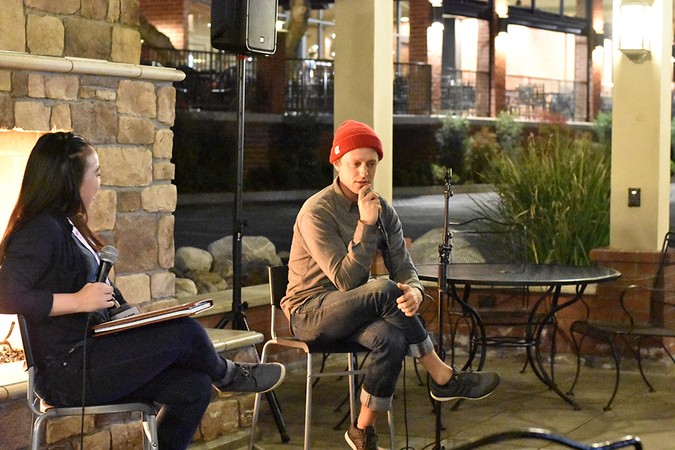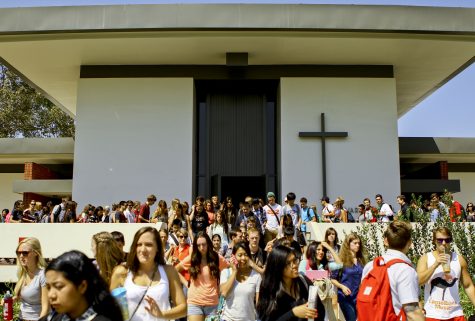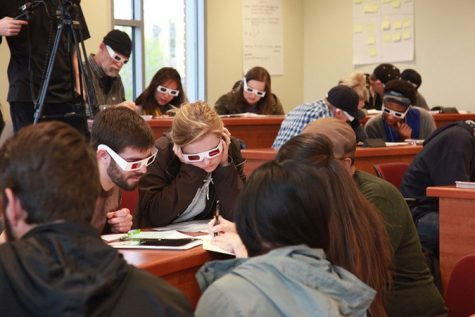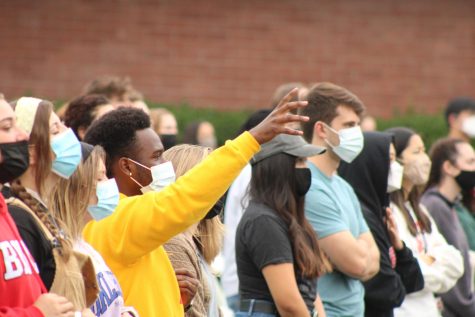Ethical fashion company CEO addresses human trafficking
Krochet Kids, Known Supply CEO and cofounder talks about the positive impacts of knowing one’s clothing.
February 6, 2018
For Kohl Crecelius it all began with a hobby—crocheting—which he did not expect to turn into a ministry and business.
ABOUT KROCHET KIDS
Crecelius, the CEO and cofounder of Krochet Kids intl., came to campus Jan. 29 for a Fireside Chat hosted by the Entrepreneurship Society to discuss his work with Krochet Kids, Known Supply, ethical fashion and his faith.
Krochet Kids intl. uses the art of crocheting to end the cycle of poverty with marginalized communities by hiring vulnerable women and helping them flourish. The company cares about paying the creators of the clothing well and giving a face to each item of clothing. The creator of each piece of their clothing signs his or her name on the item, and then the buyer can learn about the creator upon receiving the product.
“We work in regions of the world that are developing countries and that are very impoverished and poverty-stricken and so a job in those scenarios are extremely important in preventing human trafficking because when women have jobs, they don’t have to look for income in other places,” Crecelius said.
More recently, the founders launched a company called Known Supply. It provides quality blank T-shirts onto which people can place their own logo or art. Similarly to Krochet Kids, Known Supply’s purpose includes helping those who make the clothing and allowing the purchaser to know who made their clothing.
“You take a look at something like human trafficking and it’s a rampant problem that is in all parts of our world, impacting multiple lives, but it feels distant,” Crecelius said. “Making it human, we feel like, allows for people to like have an actual connection to an issue.”
This company allows other companies that do not have the resources to produce ethical clothing to brand themselves on Known Supply’s blank clothing. The company’s purpose is to create a movement of social good in the fashion industry and an awareness of the implications of clothing purchases. It also works with another group called the End It Movement, which fights to end human trafficking.
HUMAN TRAFFICKING
Today, slavery pervades society more than it ever has before. It exists in every country and nearly every industry. Labor trafficking presents one of the most common forms of slavery, and a large portion remains in the fashion industry, specifically fast fashion. While people look for the cheapest options, few think of where their clothes came from and the implications of every purchase.
“Where is the fashion industry going to go from here? They have been jumping around from country to country for decades, and, you know, I feel like they’ve exploited, you know, most of the places that they can, and that it really behooves them to stay put and to figure out a way to operate ethically and safely in Bangladesh,” said Elizabeth Cline in an NPR broadcast from 2015, shortly after a building collapsed in Bangladesh and killed 1,100 garment workers.
Companies such as Krochet Kids and Known Supply bring conviction to a world instigating unfair trade and abusive work environments. They offer hope that industries can change, slavery can end and people can receive respect.
“What he was talking about ethically sourcing products, to me, that plays right into the faith at work integration, right. So it’s kind of like if we think about human flourishing, if we think about







